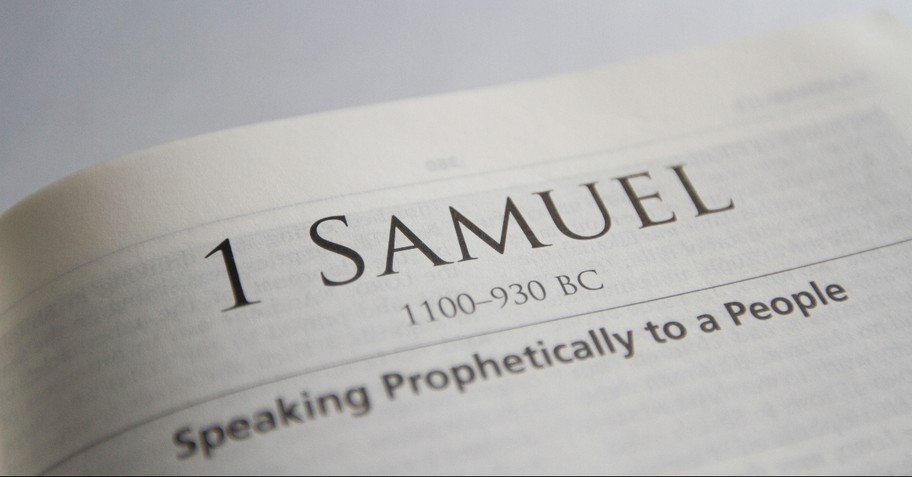What Can We Learn from the Relationship Between David and Saul?

You’re in a powerful position within your company. A young upstart, who you’ve been mentoring, starts to get more attention than you. What do you do? Do you take pride in his success? Do you delight to see that one who is coming after you might do even greater things for the people you are leading? Do you celebrate his leadership and work to make him succeed? Or do you terrorize him, labor to keep him in his “place” and fight to keep your own power?
You’re the young upstart. You are ecstatic that such a powerful leader decided to associate with you. You have been serving him faithfully for a while now. You’ve quietly worked behind the scenes, expended your energies to lift up the position of your leader. Suddenly he hates you. All of the favor he had placed upon you (things like having you marry his daughter) seems completely backward now. You feel betrayed. Rejected. Lonely. Confused. The future, once seeming so bright, now is filled with dark clouds. Some people are clamoring to make you the leader instead of your former boss. What do you do? Do you run away? Do you stay and fight?
I’ve just described for you some of the dynamics between the relationship between David and Saul – Saul the king, and David the future king. Whether we find ourselves in a position similar to Saul or David, there are a few lessons we can learn from their relationship.
Photo Credit: ©Getty Images/FTiare
What Is the Story of David and Saul?
While there are a few Psalms and other places in Scripture dealing with their relationship, the most prominent place to observe the relationship between these two men is 1 Samuel 15-31. The reader can see a definite shift in the narrative between 1 Samuel 15 and 16. Saul is rejected by the LORD in one chapter and the boy David is anointed by the Lord as the king to take his place. The readers of 1 Samuel are given clues to the rejection of Saul and the rise of David, but as the story played out in real-time it would have likely been far more jolting to David.
OT scholar, Robert Bergen, has argued pretty definitively that the narrator of 1 Samuel portrays David as the most loyal and devoted of Saul’s citizens. When Saul was tormented by an evil spirit, it was David who stepped in. When Saul’s army was on the brink of humiliation it was the young David who rose to Goliath’s challenge. He did everything that Saul asked of him. But in 1 Samuel 18 we read that Saul became jealous of the accolades given to David. Everything goes south in the relationship from this point forward.
From David’s perspective, there is no indication that he knew anything was going on until Jonathan (Saul’s son and David’s best friend) warned David of Saul’s murderous intentions. At this point, David was also Saul’s son-in-law. Saul had given his daughter, Michal, to David as an attempt to ensnare him. But to David, this would have been further evidence of his favor with the king. How confusing it must have been for David to realize that even his marriage was an attempt by Saul to keep power.
Jonathan was able to keep Saul’s jealousy at bay for a season, but eventually, Saul was overcome and obsessed with removing this threat, David, from his kingdom. David had to flee. The rest of 1 Samuel is David running from Saul until it ends with Saul’s death. It is during this time that many Psalms were written by David (Psalm 18, 57, 59, 63, 70, and 142). At one climactic point in the narrative, Saul is relieving himself in the very cave in which David was hiding. Saul has no idea that David is present. Saul’s life was in David’s hands, but David responded with integrity and preserved Saul but cut off a piece of his robe. Later when the two meet and Saul realizes that David could have killed him exclaims thusly:
“You are more righteous than I,” he said. “You have treated me well, but I have treated you badly. You have just now told me about the good you did to me; the Lord delivered me into your hands, but you did not kill me. When a man finds his enemy, does he let him get away unharmed? May the Lord reward you well for the way you treated me today. I know that you will surely be king and that the kingdom of Israel will be established in your hands. Now swear to me by the Lord that you will not kill off my descendants or wipe out my name from my father’s family.” (1 Samuel 24:17-21)
This is an apt summary of their relationship. David was the man with integrity (at least at this stage of his life) and Saul was the one who was rejected by the LORD. Saul was the one who held power but through his grasping of that power, he eventually forfeited it. David was the one with real power as exemplified in his self-control in that cave where he could have taken Saul’s life. David was, in a sense, loyal to Saul even after Saul’s death. David kept this vow and honored Saul’s family line.

What Can We Learn from David and Saul’s Relationship?
There are lessons to be learned in this story from both the perspective of David and Saul. If we are in the position of Saul, we can learn from this story how not to pass the baton. It is also a cautionary tale of what happens with both jealousy and a self-centered view of power that overtakes our hearts. If we are in the position of David, we can learn from the pain of being rejected and then pursued by one whom we thought was a friend/father figure.
If we want to analyze this story from Saul’s perspective, it would be helpful to consider the seeds of his jealousy. We must ask, why did Saul feel so threatened by David? A clue is given in 1 Samuel 18:15-16. Here we see that Saul had a fearful awe of the way that God was using David. He saw in David’s success his own failure. As David’s candle waxed brightly, Saul saw his own light beginning to wane. He knew that his kingdom was going to be given to another and rather than repent and accept God’s providence Saul kicked against it.
Saul’s story could have been so much different. First, had he obeyed God in the first place then he would not have experienced rejection as a king. But even after this happened, he could have had a redeeming story. Saul could have graciously passed the torch to David. He could have mentored the young man. He could have delighted in the prospect of another taking the reigns and leading Israel into a bright future. But his jealousy caused him to not only shipwreck his own story but also hazard the story of his people.
History is replete with examples of leaders who held onto power in such a way that they failed to launch the next generation into leadership. For Saul, it was his own personal sin that caused him to lose influence. But the same principles apply if our loss of status is from a diminished ability to express our gifts, personality, etc. We do well to celebrate those who are surpassing us in kingdom advancement.
If we desire to analyze the story from David’s perspective, it is helpful to consider some of the Psalms he wrote during this season. The theme of those psalms is a steadfast trust in the Lord in these difficult seasons. Psalm 63 is a particularly helpful reminder that when we are rejected by those whom we put our trust in, that God is the one who will bring the satisfaction we are longing for. While in the wilderness David found satisfaction in the God who would always be his home, regardless of his physical location.
David also understood that God was sovereign over his life and the life of Saul. Having drunk deeply from this well is what enabled David to not murder Saul in that cave. When this truth is implanted in our souls, we are less quick to enact judgment ourselves. We can trust God’s sovereign care for us and also his bringing others to justice. God will have the last say on both David and Saul. It’s important if we find ourselves in either position to remember this precious truth.
Photo Credit: ©Sparrowstock
The Importance of Having Faith in God's Plan and Purpose
One could say that what separated David from Saul was a confidence in God’s plan and purpose. Saul, it appears, was not able to see the bigger story. For Saul, everything rose and fell upon his own leadership. In his mind, if Saul was in power then the good story was able to continue. And so, Saul labored to keep himself in power. You can see hints of this even in what he asked David in 1 Samuel 24: “Keep my line alive”. Saul was worried about the name of
But David was able to see that God had a much bigger plan and purpose. David seems to be more concerned with the kingdom of God than with his own. We see this even in the story of his slaying of Goliath. His central concern was that Goliath was defiling “the armies of the living God.” He trusted in God and conquered Goliath. This thread remained throughout most of David’s life. His faith was in the God who would establish an eternal kingdom.
If we have faith in God’s plan and purpose, we can endure the harder seasons. We can even endure the chastisement of the Lord—and soberly be on the sidelines if this is where God has sovereignly placed us. Building into generations that you may never see is an act of having faith in God’s plan and purpose. It’s trusting in an eternal God who will be the one consistent throughout all eternity. Having faith in God’s plan and purpose also means that we will trust him with our rise (as David did) and we will also trust him when others are not celebratory of our success. We will know that it is the Lord who builds up and it is the Lord who can tear down. His plan is always best.

Conclusion
There is an interesting story in the life of John Newton. Newton in his mid-30’s was moved by a quote by the Puritan Cotton Mather. Mather said,
“My usefulness was the last idol I was willing to give up; But now I thank the Lord, I can part with that also, and am content to be anything or nothing, so that His wise and holy will may be done!”
To this Newton interjected his own thoughts:
May he make me willing to resign it at a moment’s warning; and to sit quiet in my chair or my bed, and rejoice that his work is prospering without me, and that others are serving him better when I can serve him no longer!
In other words, Newton was hoping to be more like David than Saul. For the most part, Newton was successful in this endeavor. He has a great history of pouring his life into others. He had many disciples (and through his writing is still making them). Yet, Newton also botched this a little. He refused to give up his pulpit long after he should have. They had to pull Newton down from the pulpit when it was clear he was no longer capable. Just another reminder from history that even great men of God can struggle with not trusting the Lord in every season. Thankfully Newton wasn’t given to bitter jealousy as was Saul. Yet the path of Saul is one filled with many victims.
Photo Credit: ©GettyImages/kevron2001
Originally published December 16, 2021.








